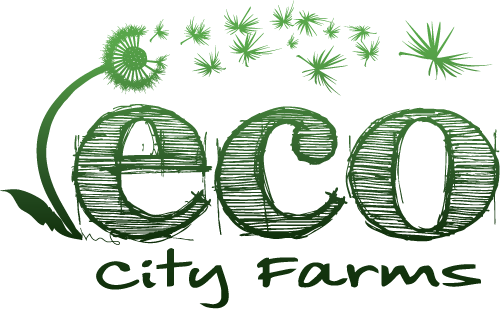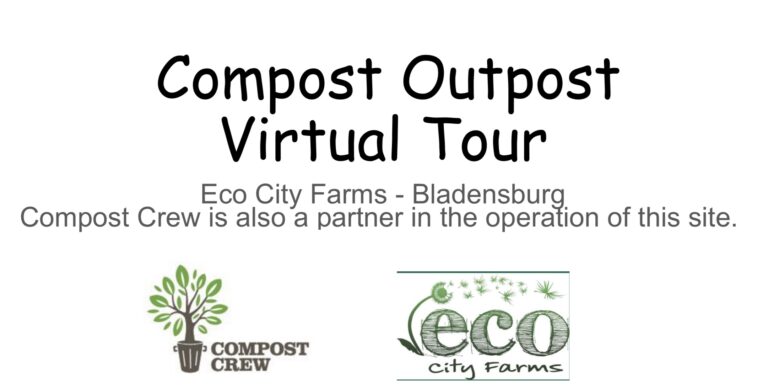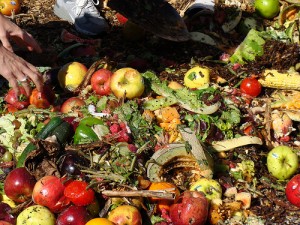 Composting
Composting
Creating a nutritious soil amendment from plant matter decomposition is otherwise known as composting. It is the basis of sustainable urban farming, which promotes a closed loop system where all components of a farm add to and support each other. ECO City Farms combines different organic wastes into a proven formula that accelerates decomposition and creates fertile soil. Our composting focus is mainly on vermicomposting, or worm composting, which creates a nutrient rich product from the worm castings.
Our compost system has two main steps for soil amendment products. We first chop organic waste and place into a static piles, for an initial decomposition. We then transfer this material into one of our 10 large 4’x4’x3′ worm bins, where the worms will complete our soil processing through vermicomposting.
Vermicomposting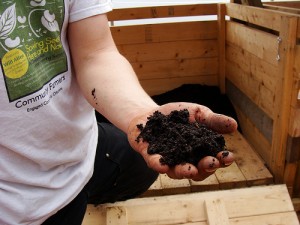
We have 10 worm bins located at our Bladensburg Farm filled with Eisenia fetida (commonly known as red wiggler worms) that thrive in decomposing matter. They are the hardest working livestock on our urban farm. Red wriggler worms consume their body-weight in organic matter every single day, and reproduce every 2 to 3 months. These precious animals produce some of the finest soil additives one can find: known as worm castings.
We use worm castings throughout our farm, and beyond. The castings are added to our soil to grow our produce, they can be sold as soil amendments to other growers, and they can be used to create a living organic liquid fertilizer known as compost tea.
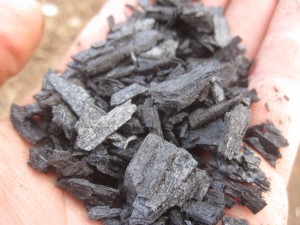 Biochar
Biochar
We also create and use biochar on our farm, which is a charcoal used for agricultural purposes. It is highly valued for its ability to stabilize soil PH, lock carbon into the soil and increase water retention and beneficial microbial growth. We love it for all these reasons and more including that trees, brush and pallets from our farm are turned into high value soil amendments as opposed to being hauled away.
Compost Tea
Another key component of our sustainable farming practice is compost tea. We make compost tea from worm castings as both a form of organic liquid fertilizer and pest and disease management tool. Compost steeped in water and added aeration promotes beneficial bacteria and fungal colonies which help to promote healthy, living soil which then in turn promotes healthy resilient plants. We choose to go beyond organic and do not spray any chemical fertilizers, use any petroleum-based or non-organic treatments or any herbicides, pesticides, fungicides of any kind.
Sources of Our Food Waste and Organic Material:
- Food waste: local residents and Compost Crew
- Coffee grinds: Vigilante and Starbucks
- Leaves: Bladensburg, Edmonston and Colmar Manor Municipalities
- Woodchips: Local tree removal companies
Additional Resources for Composting
Guides:
Videos:
Books & DVDs:
Here is our guide to composting: Composting Handout from Sowing Seeds Here and Now Summit
And below are some books, DVDs, and links that are great starting points:
- The Rodale Book of Composting
- The Complete Compost Gardening Guide
- Vegetable Gardener’s Bible
- Worms Eat My Garbage!
- Growing Power’s Vermiculture DVD
- BeginningFarmers.org Composting Page
- Cornell’s Composting Portal
